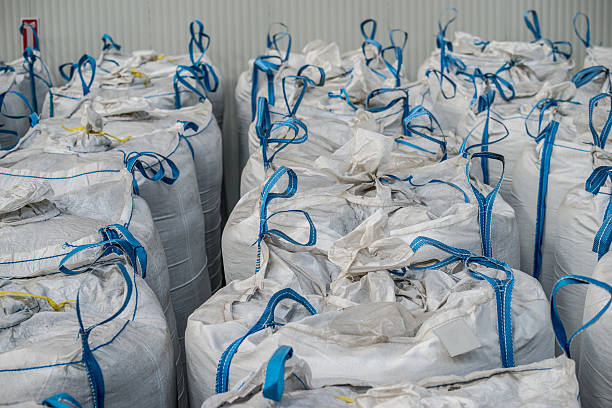In the world of shipping, the efficient and safe transportation of dry bulk goods is a top priority for both shippers and carriers. Dry bulk container liners have become an essential tool in achieving this goal, providing a cost-effective and reliable solution for the transportation of a wide range of dry bulk products.
What are Dry Bulk Container Liners?
Dry bulk container liners, also known as bulk liner bags or sea bulk liners, are large, flexible bags that are designed to fit inside standard shipping containers. They are used to transport dry bulk goods such as grains, powders, and granules, providing a protective barrier between the cargo and the container walls. This helps to prevent contamination, moisture ingress, and damage during transit, ensuring that the goods arrive at their destination in optimal condition.
Types of Dry Bulk Container Liners
There are several different types of dry bulk container liners available, each designed to suit the specific requirements of different types of cargo and shipping containers. Some of the most common types include:
1. Standard Container Liners: These are designed to fit inside standard 20-foot or 40-foot shipping containers and are suitable for a wide range of dry bulk products.
2. Top Loading/Discharge Liners: These liners feature additional access points at the top of the bag, allowing for easy loading and unloading of cargo without the need to open the container doors.
3. Baffle Container Liners: These liners incorporate internal baffles or partitions to prevent cargo from shifting during transit, providing added stability and protection.
4. Ventilated Container Liners: Designed for products that require airflow during transportation, these liners allow for the controlled exchange of air to prevent moisture build-up and maintain product quality.

Benefits of Using Dry Bulk Container Liners
The use of dry bulk container liners offers a range of benefits for both shippers and carriers, including:
1. Cost-Effective Transportation: By using container liners, shippers can maximize container space and reduce the need for additional packaging materials, leading to cost savings.
2. Cargo Protection: Container liners provide a protective barrier against contamination, moisture, and damage, helping to preserve the quality of the cargo during transit.
3. Easy Loading and Unloading: Liners with top loading and discharge features streamline the loading and unloading process, reducing turnaround times and increasing efficiency.
4. Versatility: Container liners can accommodate a wide range of dry bulk products, making them suitable for use in various industries including agriculture, chemicals, minerals, and more.
5. Environmental Sustainability: The use of container liners can help to reduce the environmental impact of shipping by minimizing the need for single-use packaging materials and reducing product wastage due to damage or contamination.
Considerations for Using Dry Bulk Container Liners
While dry bulk container liners offer numerous advantages, there are some important considerations to keep in mind when using them for shipping:
1. Compatibility: It is essential to ensure that the type of liner selected is compatible with the specific dry bulk product being transported, taking into account factors such as product flow characteristics, moisture sensitivity, and required ventilation.
2. Container Condition: The condition of the shipping container itself is crucial, as any defects or damage could compromise the effectiveness of the liner in protecting the cargo.
3. Handling and Installation: Proper handling and installation of the container liner are important to ensure its integrity during transit and prevent potential damage to the cargo.
4. Regulatory Compliance: Shippers must ensure that the use of container liners complies with relevant regulations and industry standards to avoid any potential issues during transportation.
In conclusion, dry bulk container liners play a vital role in the safe and efficient transportation of dry bulk goods by sea, offering a cost-effective and reliable solution for protecting cargo during transit. With a variety of options available to suit different cargo types and shipping requirements, these liners have become an indispensable tool for shippers and carriers looking to optimize their shipping operations while ensuring the integrity of their products.
Post time: Aug-08-2024



